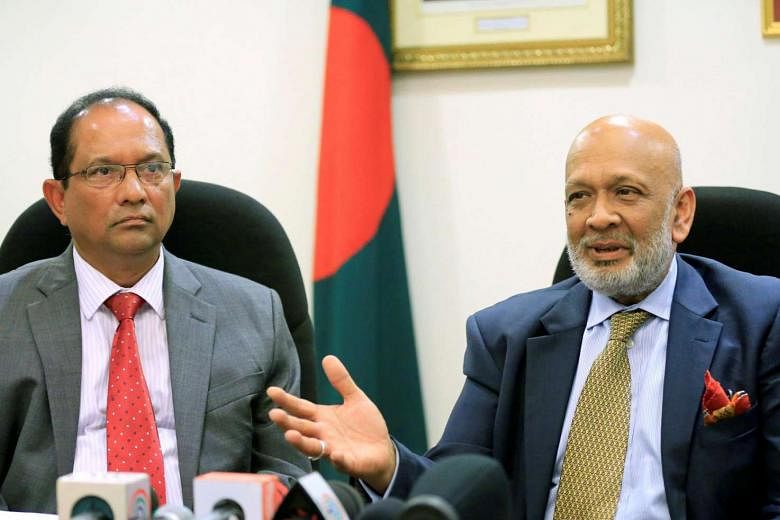In its editorial on Sept 26, the paper says it remains a shame that the Philippines will be returning only a small portion of money stolen from an impoverished nation like Bangladesh.
The international embarrassment from the cyberheist involving US$81 million (S$ 110 million) from the central bank of Bangladesh continues.
Two developments last week indicate that more action to recover the missing funds will be initiated against Philippine institutions by the Bangladesh central bank.
Hackers reportedly from China tried to steal US$1 billion from the Bangladesh central bank's account at the Federal Reserve Bank of New York last February and succeeded in transferring US$81 million to four accounts at a branch of Rizal Commercial Banking Corp. on Jupiter Street, Makati.
During the Senate inquiry held before the national elections last May, casino junket operator Kam Sin Wong (aka Kim Wong) admitted to have received US$35 million of the stolen funds; he returned only US$15 million, claiming that a portion of the funds ended up with other casino personalities who remain at large, and that another portion was still with Philrem, the foreign exchange trader that served as the main link between RCBC and the Philippine recipients.
Last week, Bangladesh Bank finally got a Philippine court order in its favour to get back a portion of the stolen money that was forfeited and kept in the vault of the Bangko Sentral ng Pilipinas.
"It has been established that the account of Bangladesh Bank maintained with the Federal Reserve Bank of New York was hacked, through the unauthorised payment instruction by still unknown perpetrators, resulting in the illegal transfer of US$81 million to identified RCBC accounts here in the Philippines," the court said.
It declared that Bangladesh Bank is the rightful owner of US$4.63 million and P488.28 million (or a total of S$13.78 million) now in Bangko Sentral safekeeping.
While the court order-which took a long time to be issued because no one had contested the forfeiture-was procedural insofar as the Philippines was concerned, Bangladesh now has leverage to go after the other companies that got hold of the money.
Debaprosad Debnath, head of Bangladesh Bank's financial intelligence unit, was quoted last week as saying that the court order proved the bank's claim that money was hacked and it had the right to get it back.
With the court order, Debnath said, Bangladesh may now find it easy to demand that other accused institutions in the Philippines-RCBC, Philrem and Solaire-return the rest of the money.
Mohammad Abdur Rab, joint director of the financial intelligence unit, agreed that the court order and the fine on RCBC would make the recovery procedure easier for Bangladesh Bank. The Bangko Sentral slapped a P one billion fine on RCBC last August-the single-biggest monetary penalty on an erring financial institution in Philippine history.
The Yuchengco-led RCBC will also face non-monetary penalties for insufficiently guarding against the money-laundering scandal that shook the Philippine financial system and the casino industry, Bangko Sentral Deputy Governor Nestor Espenilla Jr. told a Senate hearing last Monday on the proposed amendments to the Anti-Money Laundering Act and bank secrecy laws.
The Anti-Money Laundering Council (AMLC) also announced at the same Senate hearing that it would file before this month's end charges against RCBC officials in connection with the cyberheist.
Vencent L. Salido, deputy director of AMLC, said it had filed cases against RCBC Jupiter officials, Kim Wong, and Philrem executives.
However, there is a "missing link" and the AMLC has an ongoing investigation of RCBC officials, Salido said, pointing out that the transactions went through the bank, hence making its officials liable.
The issue is: Who knew of the crime?
While RCBC officials have denied knowledge of the crime, Salido said there are other ways to establish knowledge. "You know exactly that the transaction is illegal. Why did you allow it? So we have to find documentary evidence," he said.
At the end of the day, it remains a shame that the Philippines will be returning only a small portion of the money stolen from an impoverished nation.
And given the recent developments, closure to this saga is still not in sight.
* The Philippine Daily Inquirer is a member of The Straits Times media partner Asia News Network, an alliance of 21 newspapers.

